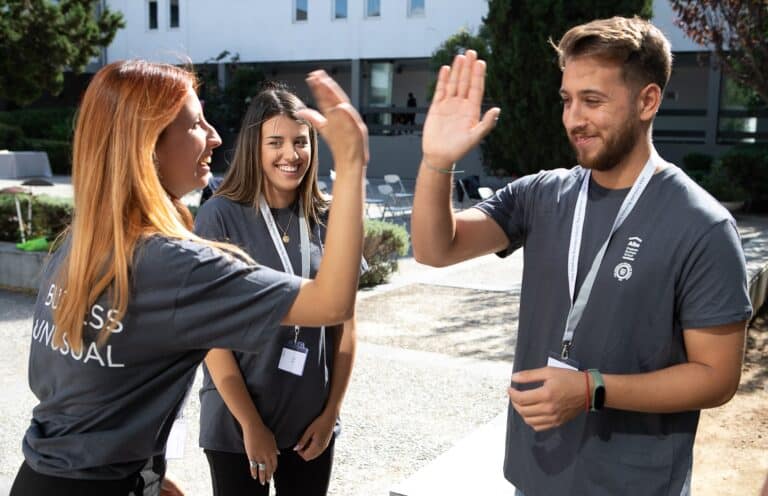What Should I Know Before Writing a Thesis/Dissertation?
During our studies, sometimes we find ourselves writing a dissertation, thesis, or maybe just a minor investigation work which needs to be presented in a certain way. Recently, I’ve also been working on my dissertation to graduate from Spanish philology and I certainly had to overcome a lot of struggles during the process. Therefore, I would like to share with you the experience I’ve had which I hope you find useful, especially if you’re new to this, just as I was.
How Do I Choose My Topic?
Choosing the right topic is tricky. Although it sounds tempting, choosing the topic just depending on our likings is not the best idea. Here are some tips:
– You need to adjust your topic to the extension and the purpose of the dissertation. You should first look up the structure and the requirements of the university that apply to the dissertation, then calculate how much time and what resources you have. Be realistic but don’t make it easy for yourself. Otherwise, you might end up with a project that can’t be completed or with a project that doesn’t meet basic quality requirements.
– Don’t recycle other dissertations or topics that have already been discussed unless you want to provide some innovative ideas. Neither should you choose something that has highly predictable results. The point of any investigative work is to bring something new to the world.
– There are basically three kinds of dissertations: those that are more practical (you choose to investigate a certain topic with real data), those that are mainly theoretical (you propose a new theory or revise an existing one, you bring together all the information about a topic that has not been treated yet), and those which are based on a practical project you carry out. You should choose the one you feel most comfortable with.
– As soon as you have decided on the topic, I would strongly recommend talking to your tutor.
– Once you have some idea of which field you would like to work in, you should start gathering information. From there, you should narrow the scale from general to specific. Read books that talk about the subject, read previous theses or dissertations, speak to experts, observe the subject you want to study in real life. During that process, don’t forget to take notes. Write down or record every idea that seems important and write down where you found that idea (you will need that for the quotes).
– Don’t be afraid of changing your topic if you find out you need to. Do not insist on following something that will clearly be impossible in your particular situation.

Investigation
Now the fun begins. At this point, your task will be to take a close look at all the information available and then use it in your investigation. Here are some tips on what steps you can follow:
– More reading, observing, and gathering information. There’s never enough. Keep in mind that all the sources you work with must be up to date. When reading papers or previous dissertations, work only with academic materials. I recommend using Google Scholar if working with the internet. That way you can avoid questionable sources.
– Once you have all the information needed, start working on your methodology. Adjust the methodology to the actual time and resources you have. There is no such thing as a general methodology for all dissertations, the best thing is to share your ideas with your tutor.
– There are some basic ways of research: quantitative method (working with numbers and statistics), qualitative method (analysing situations/behaviour/responses), and the combination of both. Personally, I would recommend a quantitative method for beginners, as it requires less decision-making.
– Keep in mind that during the investigation, things might not go as planned. Keep going! Failure is also a part of the research. However, you should have some time reserve or some backup right from the beginning, just in case.
– There’s a very useful phrase my professor used to say, “sometimes you are looking for the Romans, but you end up finding the Greeks instead.” Be open-minded, don’t force the results so they fit your initial hypothesis. If the methodology was right, all the results are significant.
Writing the Dissertation

As for writing the dissertation, every centre or university has its own guidelines. If not, your tutor should give you some. However, here are some tips you might find useful:
– Always quote everything that’s not your idea.
– Use academic language and avoid subjective voice i.e. using I, me, my, etc. However, you should include your own point of view in the analysis section.
– Pay special attention to the title, summary, and introduction. Those are the parts others will most likely read first, and therefore should be interesting enough to make them read the whole text.
– It is important your dissertation has no errors or mistakes. Always double-check.
Public Presentation
Sometimes theses/dissertations must be presented in public. If you have to do this, I suggest following some of these tips:
– The presentation is meant to quickly sum up some main points of your work. Leave out most parts of the theoretical section and focus on your own work. Spending too much time on the presentation is actually considered an error and will cost you some points – you need to learn how to summarise.
– Keep in mind you might be asked some additional questions, so be prepared.
– It is always useful to use some visual support such as PowerPoint presentations or posters.
As you can see, writing a dissertation or thesis is a very complex and difficult process which reminds me of what I would call ‘the snowball effect’: you gradually need to gather more information, do some research and write down the ideas, then repeat the process and so on until the work is finally done. You might feel completely lost at the beginning, however, I do believe this article will help you to organise your tasks and ideas.
If you have also had to write a thesis or dissertation recently, do not hesitate to share your experience with us in the comments section below!
Recent Posts

If you're thinking of studying a technical subject like engineering at university, it's crucial that you choose a university that has a rigorous ...

Although it's possible to sail through university without giving a thought to what you're going to do afterwards - concentrating only on enjoying ...

Ever thought about studying in Greece? Between the sunny weather, incredible history, and breathtaking coastline, you could also get a top business ...

